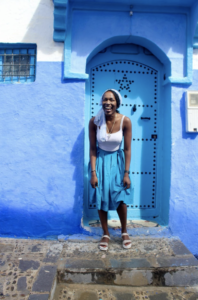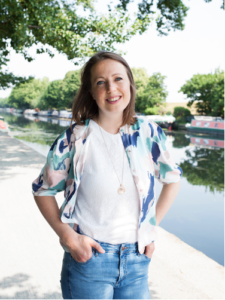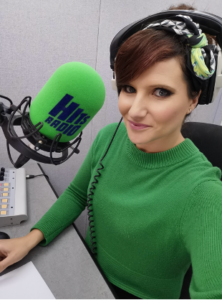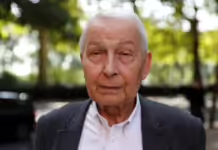Today is International Women’s Day, meaning a celebration of women and a fight for a gender equal world.
Fighting for a world free of stereotypes and discrimination, the day brings all women together to #BreakTheBias.
The journalism industry has continuously faced issues such as gender inequality, unequal pay and bias in the newsroom.
To celebrate the day, Merseynewslive spoke to three powerful female journalists who have made an impact in the industry for a number of different reasons.
Hannah Ajala
Hannah Ajala is currently an international broadcast journalist for BBC World Service radio.
She got into her career for the excitement and eagerness that she felt when first exploring her journalistic aspirations.
From working with the BBC, to creating her own project called ‘We are Black Journos’, Hannah has continued to work hard as a female journalist.

‘We are Black Journos’ is a community platform that was created to celebrate and connect Black journalists and those aspiring to work in journalism.
Talking to Merseynewslive, Hannah spoke about her experiences when writing about women.
She said: “Being the youngest of six kids and being the only woman, I’ve always had a keen eye in positively fighting for women’s rights, for women’s voices, so in any capacity I am really passionate about doing that.
“Whether that’s stories that really talk to the diaspora in London, in the UK, Black-British women to my almost two years spent in West Africa, I love shedding light on stories about women doing incredible things.”
As the problem of gender inequality in journalism continues, Hannah reiterated some personal situations she has experienced.
She said: “Due to ageism and working with older men, some have come with that know-it-all personality.
“A lot of them will try to tell you about experiences that they’ve never experienced, so I stand firm and tell them that you do not share this experience and cannot necessarily speak on that, but I can or other women like me can.”
However, the introduction of such projects as the BBC’s 50:50 equality project has meant women in journalism are becoming more and more noticed.
“This is not just a moment; this is a movement.”
Hannah ended by saying: “I feel so excited for female journalists of today that are just breaking into this industry, finding their feet, and navigating because we are a community.”
“I emphasise when I say us, especially as a black woman, because there are so many of us that are visible, and we are all in this together.”
Anna Kessel
Anna Kessel is currently Women’s Sports Editor for The Telegraph and is the Co-Founder of Women in Football.
She has been working in sport’s journalism since 2004 and in 2019 was recruited to work in the first ever newspaper women’s sports department at The Telegraph.
Talking about her success, Anna explained that she has never set out to be successful or earn a certain amount of money.
She told Merseynewslive: “I’ve always done things because I care about them and they’re important to me and that’s always been the thing that’s motivated me and kept me up working at night.”

As the co-founder of Women in Football, which began with six women sat round a table going ‘What an earth can we do about this extremely sexist industry!’, Anna has continuously worked hard to highlight the inequality of women in sports coverage.
Anna said: “Women’s sports coverage has developed, as well as the number of female journalists.
“Now you switch on the TV or radio and it’s quite normal to hear a women’s voice, to have been part of that journey and to have seen the changes is satisfying.”
Anna then spoke about her personal experiences with gender inequality and reporting in a very male-dominated working field.
She said: “I’ve experienced tonnes of inequality and tonnes of sexism, whether it was another journalist making sleazy comments or sexual innuendos, it felt like a not very safe space for women to be in.
“I’ve been in situations where a footballer would ask if I wanted a lift back to the station, and of course as a journalist you want to get in the lift, you want to carry on the conversation, but then you’ve got the other side of ‘Should I as a young women get in the car and if I give them my number will they treat it professionally?’.”
“Men definitely need to listen more to women and understand that they have a viewpoint that is valid and important.”
Being in the industry for nearly 20 years, it was important to speak to Anna about any advice she would give to young female journalists wanting a career in journalism. Anna highlighted what she thinks is in store for new and young female journalists.
Anna said: “I want to be transparent and say it’s not easy and in newspapers there is still a very traditional environment.
“It is mainly still white men sat around making decisions and even if they bring in one woman, for that one woman it’s not always easy to argue your case.”
Michelle Livesey
Michelle Livesey has worked for Bauer Media since she was 18 years old. Now Deputy News editor, she has worked for the company for 21 years and has been reporter, presenter and more.
One of the major achievements Michelle spoke about in her career was getting Clare’s Law passed, after Clare Wood was tragically murdered by her ex-boyfriend.

Clare’s Law designates several ways for police officers to disclose a person’s history of abuse behaviour to those who may be at risk, to help reduce cases of domestic violence.
Talking about the achievement Michelle said: “As a reporter I was covering murders, and this was unfortunately one that was on my patch. When the inquest came out about how Clare was really let down by the system, that affects you personally, and it is such a big issue which affects so many women.
“We had an opportunity to change things there.”
Discussing women in journalism, Michelle reiterated some of the ongoing issues she has faced throughout her career as a woman.
She told Merseynewslive: “I remember going to police raids and feeling like I’m a woman in the room and people would be looking at me, but now things have massively changed because of campaigns and people standing up for rights.”
She added: “Women in media and journalism has come such a long way, people presenting would had to have had a certain look back then, it’s now about the talent and there’s definitely more diversity.”
After speaking about how there has been progress concerning gender equality in journalism, and highlighting how her company Bauer Media provides equal opportunities for men and women, Michelle told Merseynewslive about what is has meant for her to be a woman in the industry.
“The whole point of being a journalist is to put issues out there and to get people talking.”
Michelle said: “Clare’s Law got people talking about domestic violence, it got people realising that it’s happening, it also sparked conversation in parliament about funding for people escaping domestic violence.”
See here for more information about International Women’s Day.









